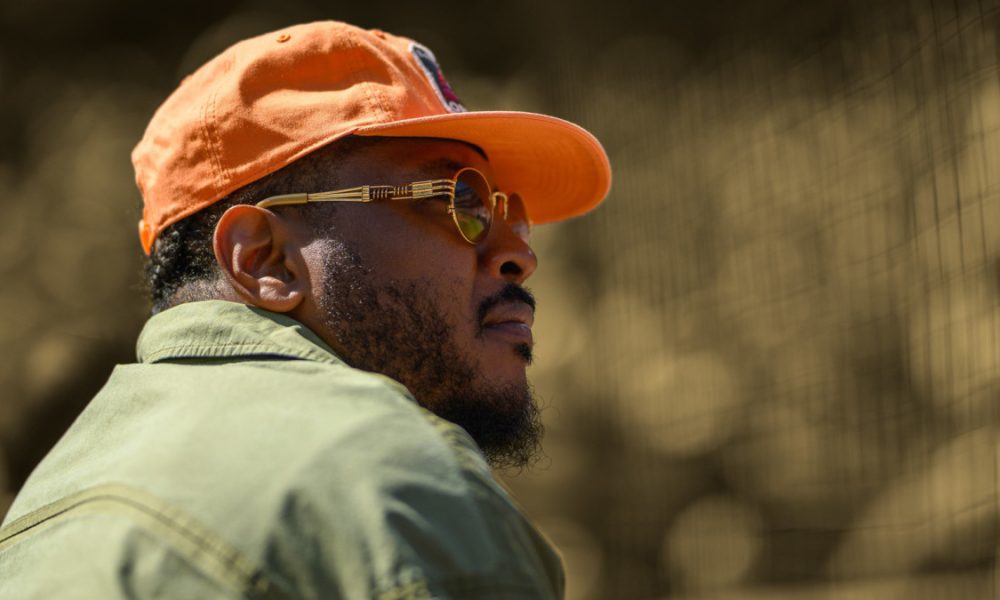NIL
“Spike made NIL movies before NIL” – Carmelo Anthony praises Spike Lee for showing the business of college basketball before NIL existed
Spike Lee’s “He Got Game” isn’t just a classic basketball film; it’s a prophetic look at the future of college hoops, one that Carmelo Anthony and a generation of athletes now recognize as the blueprint for the NIL era. Released in 1998, the movie follows Jesus Shuttlesworth, a high school phenom caught in the crossfire […]

Spike Lee’s “He Got Game” isn’t just a classic basketball film; it’s a prophetic look at the future of college hoops, one that Carmelo Anthony and a generation of athletes now recognize as the blueprint for the NIL era.
Released in 1998, the movie follows Jesus Shuttlesworth, a high school phenom caught in the crossfire of big business, college recruiters, and the weight of family and community expectations. For many, it was the first time the realities of college basketball’s underbelly were put on full display.
Exposed the business behind college basketball
“That was the first, probably, NIL movie. It had to be. That and Blue Chips were like the first,” Carmelo Anthony reflected, echoing a sentiment that’s become more common as the NCAA landscape has shifted.
Advertisement
Before NIL (Name, Image, and Likeness) became a rallying cry, Lee was already exposing the transactional nature of recruiting, the pressure on young African-American athletes, and the way their talent became currency for everyone around them.
“Now Spike made NIL movies before NIL. That’s what I’m talking about,” he said.
“He Got Game” exposed the high-stakes world of college sports, where coaches, boosters, and agents compete for the next superstar.
“You really show what this is like, right? For a black athlete in that type of environment who don’t have the resources and access of being able to go to college or the funds to go to college and they are put into these experiences and it’s almost, you expose the whole thing,” Anthony added.
Advertisement
The movie’s recruiting scenes, complete with cash, cars, and promises, felt ripped from real life. For many viewers, it was a wake-up call about the true business of college basketball.
Related: “I knew my days with the Celtics were over” – Larry Bird admits his love for Boston ended when the team traded his favorite teammate
“That movie was so pivotal for basketball culture”
Lee didn’t just capture the pressure and temptation; he also showed the human side. The main protagonist isn’t a saint or a villain; he’s a kid trying to navigate impossible choices, just like so many real-life prospects. The film’s honesty made it “pivotal for basketball culture,” as Carmelo put it, and its impact went far beyond the box office.
Advertisement
“That movie was so pivotal for basketball culture…He got a lot of schools in trouble, too. It’s definitely true. He got games. Definitely true. Got a lot of universities. What kind of trouble? It was 25 years too early,” he continued.
The movie’s influence is even clearer now, as the NCAA finally allows athletes to profit from their name, image, and likeness. The world that “He Got Game” depicted, where everyone profits except the player, is finally dismantled.
“You set the tone with that, though, because seeing them figureheads in there, the coaches at that point in time. It was the movie that made. It’s hard, they hated each other, those coaches,” Melo concluded.
For Anthony, who lived in the recruiting circus and became a college legend before the NIL era, the film was both a mirror and a warning. It captured the tension, the stakes, and the business side of the sport long before the rules changed. Now, as players sign million-dollar deals and control their own brands, it’s clear that Lee’s vision was ahead of its time.
Advertisement
Ultimately, “He Got Game” wasn’t just a movie; it was a forecast. It showed the world what was coming, and for today’s athletes, it’s proof that the game off the court can be just as important as the one on it.
Related: Mike Bibby has a clear stance on recruiting players since NIL: “If that’s the first thing the kid asks about, I don’t want it”